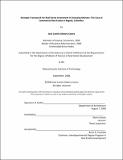| dc.contributor.advisor | Gloria Schuck. | en_US |
| dc.contributor.author | Otálora Castro, José Camilo | en_US |
| dc.contributor.other | Massachusetts Institute of Technology. Center for Real Estate. | en_US |
| dc.coverage.spatial | s-ck--- | en_US |
| dc.date.accessioned | 2010-09-22T15:54:20Z | |
| dc.date.available | 2010-09-22T15:54:20Z | |
| dc.date.copyright | 2008 | en_US |
| dc.date.issued | 2008 | en_US |
| dc.identifier.uri | http://hdl.handle.net/1721.1/58633 | |
| dc.description | Thesis (S.M. in Real Estate Development)--Massachusetts Institute of Technology, Dept. of Architecture, Center for Real Estate, 2008. | en_US |
| dc.description | This electronic version was submitted by the student author. The certified thesis is available in the Institute Archives and Special Collections. | en_US |
| dc.description | Includes bibliographical references (leaves 69-74). | en_US |
| dc.description.abstract | Real estate investment is becoming increasingly international. Deregulation and integration of global capital markets, growth of emerging market economies, demographic trends in developed economies, and geopolitical and sociocultural changes the world over are presenting opportunities for international real estate investors in a fascinating, complex and interconnected market place. Latin America seems to be one of the last frontiers still unexplored by international real estate investors. Colombia in particular is making quiet and steady efforts to internationalize its economy and welcome Foreign Direct Investment (FDI). Among the policy-makers' long-term goals, Colombia aspires to become one of the three most competitive countries in Latin America by the year 2032. International real estate investors need to adapt their tools and techniques to underwrite new and uncharted markets that present investment opportunities. This thesis proposes a comprehensive strategic framework for international real estate investments, by adapting from selected business academic literature and real estate industry practice different decision-making approaches. The purpose of the thesis is twofold. First, by proposing a strategic framework, the work intends to contribute to the development of strategic decision-making literature in international real estate investment. Second, by utilizing the strategic framework to study selected issues and variables that are deemed relevant or pertinent to the commercial real estate market in Bogota, it attempts to serve as a resource to international real estate investors interested in the market. | en_US |
| dc.description.statementofresponsibility | by José Camilo Otálora Castro. | en_US |
| dc.format.extent | 84 leaves | en_US |
| dc.language.iso | eng | en_US |
| dc.publisher | Massachusetts Institute of Technology | en_US |
| dc.rights | M.I.T. theses are protected by
copyright. They may be viewed from this source for any purpose, but
reproduction or distribution in any format is prohibited without written
permission. See provided URL for inquiries about permission. | en_US |
| dc.rights.uri | http://dspace.mit.edu/handle/1721.1/7582 | en_US |
| dc.subject | Architecture. | en_US |
| dc.subject | Center for Real Estate. | en_US |
| dc.title | Strategic framework for real estate investment in emerging markets : the case of commercial real estate in Bogotá, Colombia | en_US |
| dc.type | Thesis | en_US |
| dc.description.degree | S.M.in Real Estate Development | en_US |
| dc.contributor.department | Massachusetts Institute of Technology. Center for Real Estate | en_US |
| dc.contributor.department | Massachusetts Institute of Technology. Department of Architecture | |
| dc.identifier.oclc | 314845807 | en_US |
